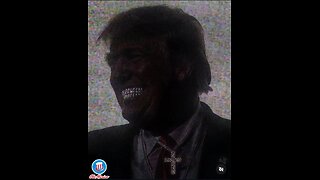Premium Only Content

Episode 3225: The Danger of Spiritual Comparison and Envy
www.catholic-reboot.com
Nightly Zoom Coordinates for Rosary:
Meeting ID: 865 8978 0399
Passcode: Wjjv4960!
Speak Lord for your Servant is Listening
Book Recommendation of the Day
St. Basil the Great: Homily on Envy
There are printed volumes of Basil’s Homilies
On the nature of envy:
“Envy is a sickness of the soul, a worm that gnaws at the heart, a hidden evil that destroys not the one envied, but the one who envies. For as rust consumes iron, so envy consumes the soul that bears it.”
We live in an age of constant comparison. Every time we open our phones, turn on the television, or even walk into our parishes, we are tempted to measure ourselves against others. Am I as holy as her? Is my family as successful as his? Do I pray as well as they do? Without even realizing it, our souls slip into a kind of quiet rivalry that robs us of peace.
This temptation is not new. Long before Instagram or parish gossip, the Desert Fathers saw how comparison poisons the soul. They knew it turns prayer into performance, charity into jealousy, and humility into pride. In their wisdom, they taught that holiness is never about being “more” than your brother it is about being faithful to Christ in the path He has chosen for you.
The beauty of their teaching is that it does not shame us for falling into envy. Instead, it offers us freedom. The Fathers remind us that God has written a unique story for each of us. He does not ask us to live another man’s life or carry another woman’s cross. He asks us to carry our own, with humility and perseverance, until the end.
If we can grasp this truth, comparison loses its power, envy loses its sting, and the soul becomes free to rejoice in the holiness of others as if it were its own. That is the freedom of humility the freedom the Desert Fathers longed to hand down to us.
The Desert Fathers fled into the wilderness, but even there, envy followed them reminding us that no one can escape the battle of comparison.
The Danger of Spiritual Comparison and Envy
The Trap of Comparison
The Desert Fathers fled the world, but they knew that the world can follow a man into the desert not in possessions or comforts, but in the hidden temptations of the heart. Even when far from cities and palaces, monks could fall into rivalry, envy, and subtle spiritual comparisons.
Comparison is a subtle sin, because it dresses itself in many disguises. It can appear as zeal: “I want to pray as much as my brother.” Or it can appear as humility: “I will never be as holy as him.” But underneath, it shifts our focus from Christ to others. The Fathers knew that once we take our eyes off God, the devil gains room to sow pride or discouragement.
Our world today makes this temptation even stronger. With social media, endless information, and constant exposure to others’ lives, we are surrounded by opportunities to compare ourselves our families, our faith, our parishes, our devotions. The Desert Fathers remind us that comparison is a snare, envy is a poison, and only humility can set us free.
Segment 1: Sayings of the Fathers
The wisdom of the Desert Fathers is both sharp and tender on this matter.
• Abba Macarius said:
“If we see a brother sin, we must throw our cloak over him and hide him, not despise him.”
How often do we compare ourselves favorably against someone who has fallen? Instead of covering their weakness with charity, we uncover it with judgment. The Father reminds us: true holiness is not in noticing others’ sins, but in protecting their dignity.
• Abba Poemen gave this counsel:
“Do not compare yourself to your brother. If he seems greater, you may fall into envy; if he seems lesser, you may fall into pride.”
Here is the double-edged sword of comparison: one side wounds with discouragement (“I will never reach his holiness”), the other with pride (“At least I am not like him”). Either way, the devil distracts the soul from God.
I’ve spoken to you about other Traditional Catholic podcasters where others will say to me why don’t you do what this guy does and you will get a larger audience. That was never my focus. My focus was not to master click bait or grow followers as the means for the CR podcast. It was to teach. If Christ and the great influencer wants me to receive larger follower they will provide me. Not that doesn’t mean I couldn’t spend more time on promoting my podcast because I actually can but just that pulls me away from my original purpose and that is to write and to write requires time and unless I have a larger budget which I don’t I have to decide what my main apostolate is about. If I spent my time comparing I would lose the spirit of what it is I am trying to teach. My focus is not on comparing but teaching and keeping my focus on Christ. See I truly believe in the remnant and that remnant are 1k+ follower and on the average a 100+ viewers. That remnant is powerful. But with that said I am both proud and happy for those other traditional catholic podcasters because they are acting according to their calling for Christ.
• Abba Anthony the Great was once granted a vision of the snares of the devil spread across the whole earth. He groaned: “Who can pass through them?” And he heard God answer: “Humility.”
Comparison and envy are snares, because they entangle us in others’ lives instead of focusing on our own salvation. Humility cuts through the snares and walks straight toward Christ.
• In the Sayings of the Fathers, a monk confessed to his elder: “I am troubled by thoughts that others are holier than I am.” The elder replied: “This is because you do not yet know your own sins. When you see your sins clearly, you will see no man as greater or lesser, but only yourself as in need of God’s mercy.”
The Fathers remind us: comparison blinds the soul, but humility opens the eyes to see one’s own sins.
Segment 2: Why This is Urgent Today
The Desert Fathers’ warnings strike at the heart of our modern culture:
1. A Culture of Comparison
Today’s society thrives on measuring ourselves against others. Social media is built on this temptation. We scroll through images of friends’ vacations, families, homes, and careers, and we compare silently: “They are happier, holier, more successful.” The Fathers would shake their heads and say: “Why gaze outward, when the true battle is within?”
2. Comparison in the Church
Even in the Body of Christ, envy can creep in. Catholics sometimes measure their parish against others, or compare devotions, liturgies, or spiritual practices. Instead of uniting in Christ, the devil sows division: “My parish is better,” or “That group is holier.” The Fathers saw this rivalry as a sickness of the soul, turning worship into competition.
3. Discouragement in Holiness
Some Catholics give up on prayer because they feel inadequate. They compare themselves to saints, or even to their fellow parishioners, and conclude: “I’ll never be like them.” But the Fathers would say: God does not ask you to be like your brother He asks you to be faithful in your own vocation.
4. Pride in Spiritual Success
On the other hand, some compare themselves and take pride in being “better” more devout, more traditional, more pious. The Fathers saw this as more dangerous than visible sin, because it poisons the soul with spiritual pride. As Christ warned in Luke 18, the Pharisee who boasted in prayer was condemned, while the humble publican was justified.
The urgency is clear: comparison robs us of peace, envy robs us of charity, and pride robs us of humility.
Segment 3: Remedies from the Desert Tradition
The Desert Fathers were not only diagnosticians but healers of the soul. They gave practical remedies to combat envy and comparison:
1. Keep Your Own Sins Before You
One elder taught: “If a man keeps his sins always before him, he will never see his brother’s faults.” Daily examination of conscience shifts the gaze from others to ourselves.
2. Pray for Your Brother
Abba Poemen said: “If you see your brother fall, pray for him, and you will gain more than if you judged him.” The Fathers turned the temptation to compare into an opportunity to intercede.
3. Rejoice in Others’ Gifts
They saw grace as abundance, not competition. If a brother received a gift of prayer or fasting, they praised God for it, knowing that one man’s gift strengthens the whole Church.
4. Guard Your Eyes and Thoughts
The Fathers warned against curiosity. A monk who busied himself with others’ lives was told: “Sit in your cell, and your cell will teach you everything.” For us, this may mean limiting social media, avoiding gossip, and resisting the temptation to “peek” at others’ spiritual lives.
5. Humility as the Foundation
True humility admits that every good thing is God’s gift. If my brother is holier, it is God’s work. If I succeed, it is God’s mercy. If I fall, it is my weakness. Humility leaves no room for envy or pride.
Segment 4: The Fruits of Humility
The Fathers testified that rejecting comparison and envy bore beautiful spiritual fruit:
• Peace of Soul: freed from agitation over others’ lives, the soul rests in God’s providence.
• Charity: the heart softened by humility rejoices in another’s holiness instead of resenting it.
• Hope: knowing that God’s plan is unique for each soul prevents despair. You don’t need to run another man’s race just finish your own.
• Unity: communities healed of envy become places of love and encouragement.
• Clarity: by focusing on one’s own sins, the soul sees clearly where repentance is needed, and makes progress without distraction.
St. Paul’s words summarize the fruit of this teaching:
“Let us not be desirous of vainglory, provoking one another, envying one another.” (Galatians 5:26).
True glory is found not in surpassing our neighbor, but in being faithful to Christ.
Conclusion: Fixing Our Eyes on Christ
The Desert Fathers teach us that comparison is a snare of the devil. It distracts us from Christ and entangles us in pride or discouragement. Envy blinds us to our own sins and robs us of charity.
But humility sets us free. Humility fixes our gaze on Christ, rejoices in the good of others, and trusts in God’s providence for our unique path.
As Abba Anthony heard in his vision:
“Who can escape the snares of the devil?”
And God answered: “Humility.”
Let us walk in humility, free from envy, content with God’s gifts, and joyful in the holiness of others until we meet together in the eternal glory of Christ.
Reflection on the Epistle (Galatians 5:25–26; 6:1–10)
St. Paul exhorts: “If we live by the Spirit, let us also walk by the Spirit. Let us not become desirous of vain glory, provoking one another, envying one another.”
Here, Paul reminds the Galatians—and us—that the Christian life cannot be lived halfway. It is not enough to believe in the Spirit; we must also walk in the Spirit. Faith must bear fruit in action.
Key Points:
1. Humility in Correction:
Paul says, “If a man be overtaken in any fault, you, who are spiritual, instruct such a one in the spirit of meekness, considering thyself, lest thou also be tempted.”
The Fathers of the Church often noted that correction without charity is cruelty. St. Augustine reminds us: “If you remove charity, correction becomes an insult.” We are to help one another up, not push each other further down.
2. Bearing One Another’s Burdens:
Paul continues, “Bear ye one another’s burdens: and so you shall fulfill the law of Christ.”
This law is the law of love—the cross-shaped love of Christ. Just as Simon of Cyrene bore Christ’s cross, so must we share in each other’s trials. In our modern world, where individualism reigns, this call to solidarity and sacrificial charity is countercultural.
3. Sowing and Reaping:
Paul warns, “What things a man shall sow, those also shall he reap.”
St. John Chrysostom observed that the sowing of the flesh—living for pleasure, vanity, or greed—brings only corruption. But the sowing of the Spirit—prayer, sacrifice, works of mercy—yields eternal life.
4. Perseverance in Good Works:
Finally, Paul tells us not to grow weary: “And in doing good, let us not fail. For in due time we shall reap, not failing.”
This is a reminder that even when good works seem unnoticed or fruitless, God sees and God rewards.
Reflection on the Gospel / Introit (Psalm 94:3)
The Introit begins with the cry: “Have mercy on me, O Lord, for I am weak: heal me, O Lord, for my bones are troubled. How long, O Lord, wilt Thou be angry? Forever? How long shall mine enemies triumph over me?” (Ps. 94:3)
Key Points:
1. The Cry of the Afflicted Soul:
The Psalm gives voice to every Christian who feels oppressed, mocked, or defeated by enemies—whether external persecutors or the internal enemy of sin. It is a lament, but also an act of faith, for it is directed toward God.
2. The Lord’s Response in the Gospel:
On this Sunday, the Gospel recounts Our Lord raising the widow’s son at Naim (Luke 7:11–16). The Psalm’s cry for help finds its answer in Christ, who restores life where there was death.
St. Ambrose writes that the widow represents Holy Mother Church, weeping for her children who have fallen into sin and spiritual death. Christ, moved with compassion, restores life to her son—just as He revives souls through His grace.
3. Christ’s Authority Over Death:
The Psalmist fears the triumph of the enemies, but Christ shows us that no enemy—not even death—has the final word. His word, “Young man, I say to thee, arise,” restores hope and reveals the divine authority of the Son of God.
4. Application to Our Times:
In an age where the Church seems weakened, persecuted, or mocked, this Sunday’s message is vital: God has not abandoned His people. Just as He pitied the widow of Naim, He looks with mercy upon His Church today. He will not allow His enemies to triumph forever.
________________________________________
Practical Takeaways
• Walk in the Spirit: Consciously seek to let your thoughts, words, and actions be guided by grace, not by pride or selfishness.
• Bear Burdens Together: Be attentive to others’ needs; even small sacrifices relieve the weight on another soul.
• Persevere in Charity: Do not tire in prayer, penance, or works of mercy. Heaven sees what the world ignores.
• Cry Out in Hope: Like the Psalmist, bring your fears and sufferings to God. His mercy restores, His justice prevails.
________________________________________
Concluding Prayer
Let us pray:
O Lord Jesus Christ, who in Thy mercy raised the son of the widow at Naim and restored him to life, look with compassion upon Thy Church and upon our souls. Grant us the grace to walk always in Thy Spirit, to bear one another’s burdens with humility and charity, and never to grow weary in doing good. Strengthen us in trial, comfort us in sorrow, and lead us to the joy of everlasting life.
Through the intercession of the Blessed Virgin Mary, Mother of Sorrows, may we persevere in faith until the day when all tears are wiped away.
In the Name of the Father, and of the Son, and of the Holy Ghost. Amen.
-
 6:57:01
6:57:01
SpartakusLIVE
7 hours ago#1 Solo Spartan Sunday || TOXIC Comms, TACTICAL Wins, ENDLESS Content
55K5 -
 49:45
49:45
Sarah Westall
7 hours agoComedians take Center Stage as World goes Nuts w/ Jimmy Dore
37.2K18 -
 3:26:14
3:26:14
IsaiahLCarter
14 hours ago $8.52 earnedAntifa Gets WRECKED. || APOSTATE RADIO 030 (Guests: Joel W. Berry, Josie the Redheaded Libertarian)
47.3K1 -
 4:44:18
4:44:18
CassaiyanGaming
5 hours agoArena Breakout: Infinite Dawg
26.8K2 -
 2:24:32
2:24:32
vivafrei
15 hours agoEp. 284: Ostrich Crisis Continues! Kirk Updates! Fed-Surrection Confirmed? Comey Indicted! AND MORE!
136K204 -
 5:05:18
5:05:18
Cewpins
5 hours agoSunday Sesh!🔥Rumble Giveaway Tonight!🍃420💨!MJ !giveaway
29.9K18 -
 3:03:11
3:03:11
Conductor_Jackson
7 hours agoLet’s Play BioShock Infinite Burial at Sea Episode 2!
30K1 -
 5:21:16
5:21:16
EricJohnPizzaArtist
6 days agoAwesome Sauce PIZZA ART LIVE Ep. #63: Charlie Sheen
58.5K4 -
 2:36:59
2:36:59
THOUGHTCAST With Jeff D.
5 hours ago $0.20 earnedTHOUGHTCAST Jeff and Keegan play Left 4 Dead 2. Classic games
27.5K1 -
 2:43:09
2:43:09
putther
9 hours ago $5.81 earned⭐ GTA ONLINE BOUNTIES THEN GTA IV ❗
70.4K4